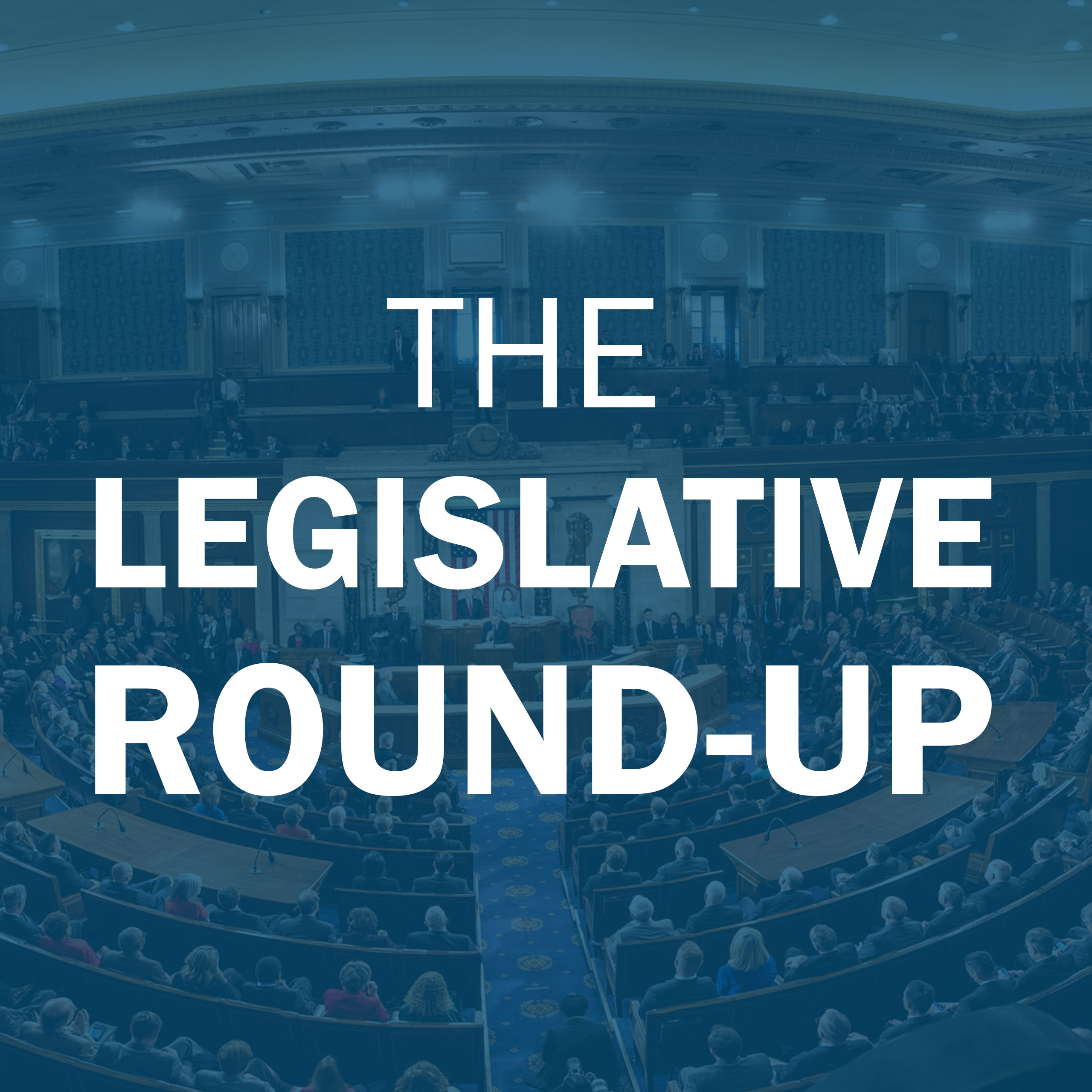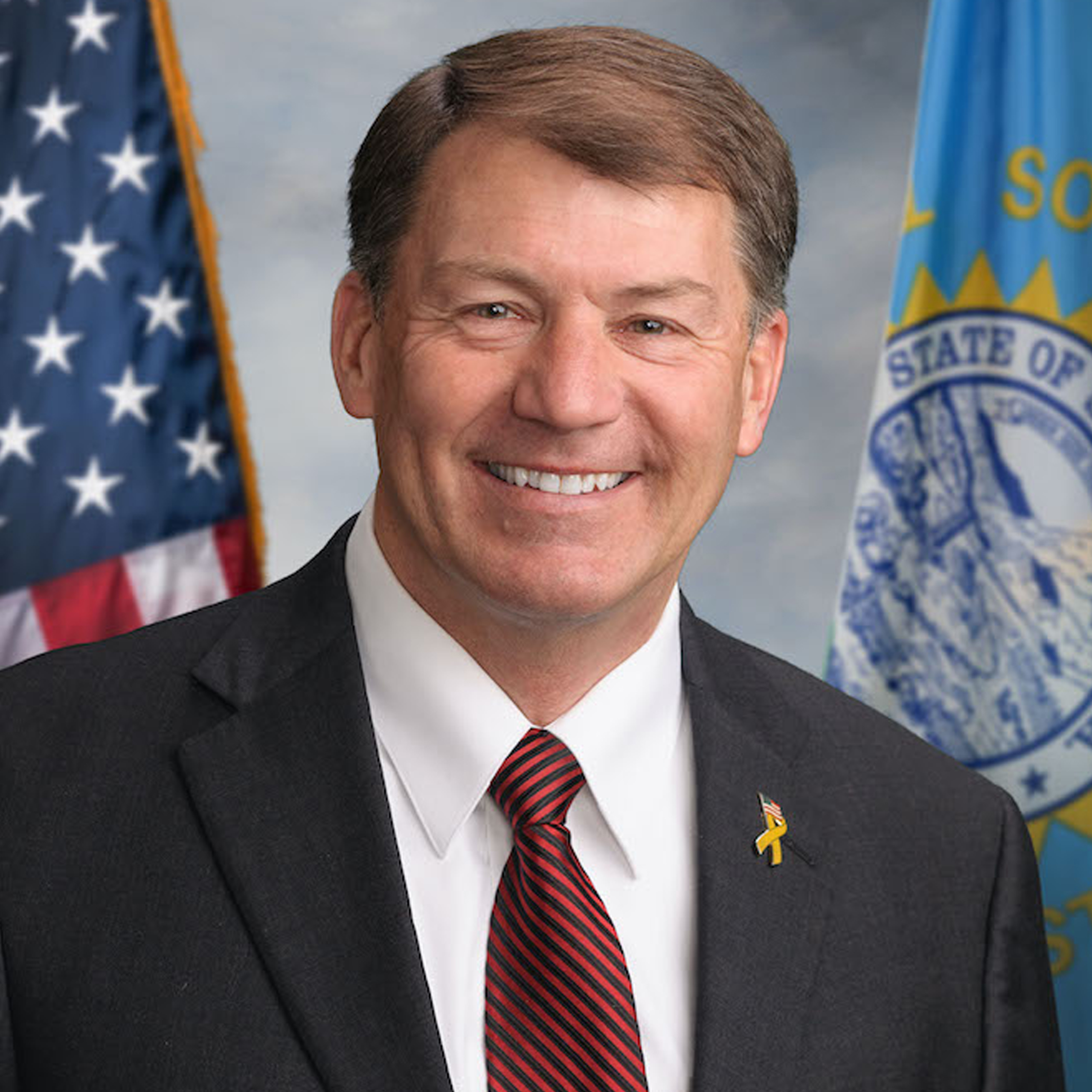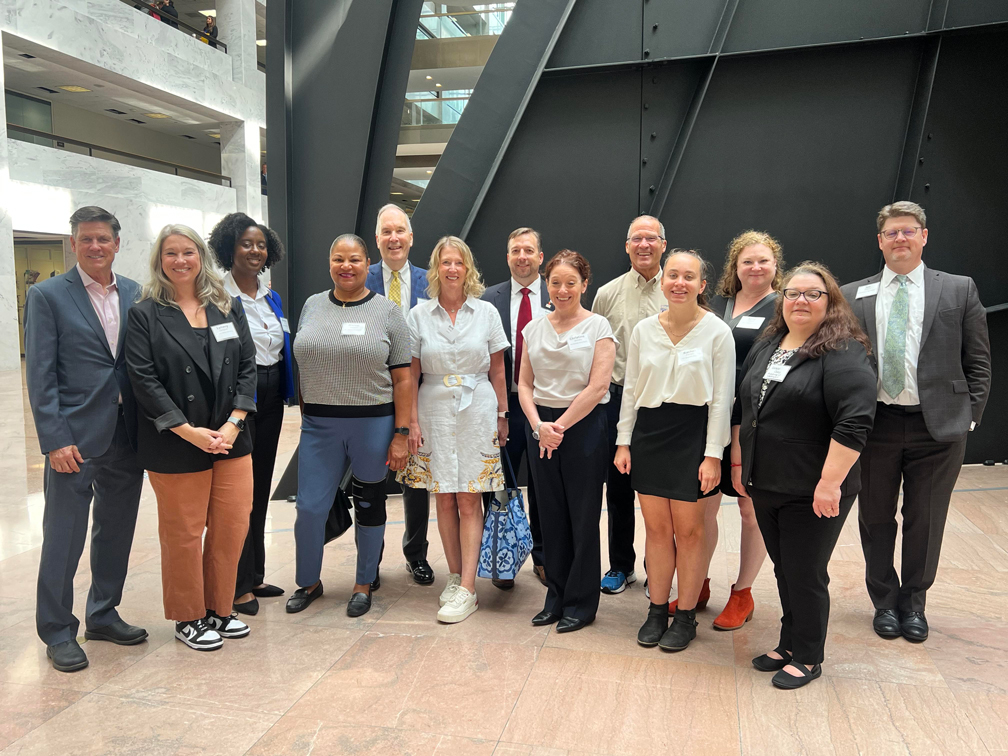Legislative Round-Up | March 2021
Included in this Round-Up
NATIONAL POLICY:
- TNPA to attend White House Briefing
- USPS Postal Rate Increases
- Amicus Brief on Donor Privacy
- National Privacy Legislation
- Universal Charitable Deduction
- Expanding the IRA Charitable Rollover
FROM THE STATES:
- Privacy Legislation: Oklahoma
- Privacy Legislation: Activity in Other States
- “PayPal” Bill: California
- Tax Policy: From the States
CONGRESSIONAL SPOTLIGHT: Senator Jeanne Shaheen (D-NH)
TNPA to attend White House Briefing
On Thursday, March 25, Shannon McCracken, CEO of The Nonprofit Alliance, will participate in a nonprofit CEO conference with the White House Office of Public Engagement. Led by Cedric Richmond, the Office Director and former Congressman, the meeting will discuss the landmark $1.9 trillion American Rescue Act and what this legislation means to the mission and operations of the nonprofit community.
USPS Postal Rate Increases
With mailers facing a daunting mid-2021 6% to 8.5% increase in postal rates (depending on the class of mail), The Nonprofit Alliance is working hard to make sure the nonprofit sector is coming together to stand up and be counted on this important issue.
On March 4, we hosted a Virtual Town Hall “USPS & How to Defend Against Unreasonable Rate Increases” led by industry experts:
- Mark Micali, Vice President of Government Affairs, The Nonprofit Alliance
- Stephen Kearney, Executive Director of the Alliance of Nonprofit Mailers
We covered the rate increase, why it’s happening now, and how it will impact mail plans and budgets within the next few months.
There is still time to weigh in with Congress to help fight these enormous potential postal rate increases. Make your voice heard:
- Sign an electronic letter to Congress.
- Write a letter to Congress on your organization’s letterhead (download a template here).
TNPA will present this Town Hall information and Q&A again this Friday, March 26, at an AFP Town Hall.
As a long-term solution to the challenge of ever-increasing postal rates, The Nonprofit Alliance continues its efforts on structural reform legislation for the Postal Service. As has been previously reported, TNPA is working closely with Senator Tom Carper (D-DE), the co-author of the 2006 US Postal Service reform law, and Senator Gary Peters (D-MI), who chairs the Senate committee with postal jurisdiction.
Amicus Brief on Donor Privacy
Huzzahs all around! We ended up with 126 signers on the Amici Brief on Donor Privacy.
In today’s world it can be incredibly difficult to get organizations to simply say “YES.” Even on issues that at first blush appear to be rather clearcut in terms of the how they are beneficial to an entity’s long-term health. But as the saying goes, “it’s never as easy as it looks!” Bureaucratic hurdles, cautious legal departments, and just plain old inertia all add up to challenges in getting to YES.
So many of you overcame these challenges! We are so happy and thankful that you did. This was a job well done. And one that will benefit the entire sector.
- The Amicus Brief was filed on March 1st with the U.S. Supreme Court.
- The oral arguments are scheduled for Monday, April 26 at 10am ET, and will be live streamed.
Check out the list of signers and thank your colleagues who put in the effort to get their organizations signed on!
National Privacy Legislation
A national privacy statute that provides one clear national standard for the handling of data to both protect consumer privacy and allow for the responsible use of data is critical. TNPA has worked closely with Congresswoman Suzan DelBene (D-WA), who on March 11 introduced H.R. 1816, the Information Transparency & Personal Data Control Act. Importantly, Congresswoman DelBene’s legislation includes a number of the key elements of a robust national privacy statute:
- A clear federal preemption of current or future state privacy statutes;
- No private right of action which could result in numerous, often frivolous class action lawsuits; and
- Litigation relative to the statute would be required to go to federal court, ensuring greater uniformity of decisions, rather than allowing a patchwork of varying state legal decisions.
What this means for nonprofits: A solid start
The need for national privacy legislation has never been greater, particularly given that a number of states are considering their own state privacy bills (see below). The Nonprofit Alliance will continue to press for one clear national standard—preempting any current or future state privacy laws—for the responsible use of data.
Universal Charitable Deduction
TNPA continues to press for expansion of the Universal Charitable Deduction. The deduction for 2020 was a flat $300 and was raised for 2021 to $600 for married couples filing jointly and $300 for individuals.
On March 9, a bipartisan and bicameral group of lawmakers introduced the Universal Giving Pandemic Response and Recovery Act (S. 618, H.R. 1704) that would raise the $300/$600 cap on the Universal Charitable Deduction to roughly $4,000 for individuals/$8,000 for couples, extend the availability of the deduction to the 2022 tax year, and importantly, eliminate the current exclusion of gifts to Donor Advised Funds (DAFs).
The Senate bill, S. 618, was introduced by Senators James Lankford (R-OK) and Chris Coons (D-DE) and was joined by a bipartisan group of six other Senators, including Senator Jeanne Shaheen (D-NH), who is featured in the Congressional Spotlight below.
The House bill, H.R. 1704, was introduced by Congressman Chris Pappas (D-NH) and Congresswoman Jackie Walorski (R-IN).
While increasing the cap on the Universal Charitable Deduction to the levels called for in the legislation may be hard to achieve in the short run, there is no question that the commitment of these members of Congress will help raise the profile of this issue, making an increase in the cap from the current level much more likely.
What this means for nonprofits: Good news
With 88% of taxpayers taking the standard deduction, and thus not able to claim a deduction when making a charitable contribution, this legislation offers a needed tax benefit to encourage support for the work of charitable causes.
Expanding the IRA Charitable Rollover
The House is positioned to raise the current limit from $100,000 to $130,000 on the amount an individual can contribute annually to an IRA Charitable Rollover, starting at age 70 1/2.
Accordingly, TNPA is focusing efforts on building momentum in the Senate for legislation sponsored by Senators Kevin Cramer (R-ND) and Debbie Stabenow (D-MI), S. 243, which not only increases the cap on IRA Charitable Rollovers, but also lowers the age of eligibility from 70 1/2 to 65 for establishing an IRA Charitable Rollover.
The list of cosponsors of this legislation continues to grow with Senator Lisa Murkowski (R-AK) having recently joined the bill’s other cosponsors: Senators John Cornyn (R-TX), Jacky Rosen (D-NV), Steve Daines (R-MT), and Gary Peters (D-MI).
What this means for nonprofits: Good News
With 10,000 baby boomers turning 65 each day, The Nonprofit Alliance strongly supports this legislation, which would be an important measure to increase contributions to the sector.
From The States
Privacy Legislation: Oklahoma
Oklahoma House Bill, HB 1602, passed the Oklahoma House on March 4 and is now before the Oklahoma Senate. If passed, this would constitute the nation’s first opt-in privacy statute.
What this means for nonprofits: Significant Concern
This legislation would have a significant negative impact on the philanthropic sector by eradicating nonprofits’ access to individuals living in Oklahoma who are likely to be interested in learning about and supporting all variety of nonprofit causes. Data legislation is often written with large tech companies in mind. However, nonprofits could become collateral damage.
TNPA has been working closely with Oklahoma-based Feed the Children and other organizations to strongly encourage the Oklahoma Senate to fundamentally change the bill from an opt-in to an opt-out measure.
If you are interested in helping in our effort in Oklahoma, please contact TNPA’s Vice President of Government Affairs Mark Micali at mmicali@tnpa.org.
Privacy Legislation: Other States
Several states have introduced legislation restricting the flow of data and information related to specific topics, ie. religious affiliation, age, and ethnicity.
What this means for nonprofits: Concern
In the nonprofit sector, this information is NOT used to discriminate, rather it is useful in locating individuals who are interested in particular causes. For example, a cause related to their religious affiliation.
To repeat from above, a national privacy policy is critical to avoid this patchwork of state regulations.
For more information on the state legislation to keep an eye on, visit our website page on State Policy. In previous Legislative Roundups, we have reported on privacy bills in FL, MN, ND, NY, OR, and WA (with CT, UT, and VA having similar bills to one of the WA bills).
“PayPal Bill”: California
California AB 488, the so-called “Paypal” bill, is in its final stages. The bill seeks to regulate online giving platforms (NOT including a nonprofit’s own online giving sites). TNPA staff has met with the sponsor’s office on several occasions and a final stakeholders’ meeting is this afternoon (Mar 23). We have some lingering issues we will try to resolve but the legislation has percolated for four years. The sponsor, Assemblywoman Jacqui Irwin, is eager to get her bill passed this session. You may review the entire text here. Questions or comments to rtigner@tnpa.org.
Tax Policy: From the States
A number of bills have been introduced dealing with the taxation of digital advertising or services related to advertising. If enacted, these measures would place added costs on nonprofits. Even if nonprofits were exempted from this legislation, nonprofits would feel the impact since so many rely on corporate partners for these items.
Congressional Spotlight
Every month, The Nonprofit Alliance will introduce you to one member of Congress who is a leader on legislative matters important to our TNPA community, with representation from both parties.
Senator Jeanne Shaheen (D-NH)
The Nonprofit Alliance has worked closely with Senator Jeanne Shaheen of New Hampshire.
Senator Shaheen is the first woman to serve as a U.S. Senator in New Hampshire’s history, the first woman elected as governor of New Hampshire, and the first woman in U.S. history to be elected both a Governor and a United States Senator. She is a trailblazer with a well-earned reputation for working across the aisle to get things done.
A former teacher and small business owner, she is known for her common-sense leadership, hard work and dedication to improving the lives of working families.
In the Senate, she serves as a member of the Senate Committees on Armed Services, Foreign Relations, Appropriations, Small Business and Entrepreneurship, and Select Committee on Ethics.
Fighting the opioid epidemic, the worst public health crisis in New Hampshire’s history, is a top priority for Shaheen in the Senate. The Senator has spearheaded crucial legislation and funding to turn the tide on the substance use disorder epidemic, including through her leadership on the powerful Senate Appropriations Subcommittee on Commerce, Justice, Science and Related Agencies (CJS). Shaheen serves as Chair of the CJS Subcommittee that oversees funding for the Department of Justice, which operates critical anti-opioid programs. As a result of Shaheen’s efforts, New Hampshire received a more than ten-fold increase in opioid treatment funding through the pivotal State Opioid Response (SOR) grant program.
Additionally, the Senator has been a champion for women both here in the U.S. and abroad. In 2016, President Obama signed into law legislation the Senator had authored—the Sexual Assault Survivors’ Rights Act, a federal bill of rights for sexual assault survivors. And in 2017, her bipartisan legislation with Senator Shelley Moore Capito (R-WV)—the Women, Peace and Security Act—which bolsters the role of women in peace negotiations and conflict resolution around the world, was signed into law.
Senator Shaheen has also been a leading voice on one of the top priorities of The Nonprofit Alliance—allowing all taxpayers, regardless of their level of income, to be able to claim a tax deduction when making charitable contributions. Earlier this month, Senator Shaheen was one of the original cosponsors of S. 618, the Universal Giving Pandemic Response and Recovery Act. This bipartisan bill, introduced by four Republicans and four Democrats, would provide a tax benefit for the 88% of Americans who do not itemize their taxes and thus may not claim a deduction when they support charitable causes.
The Nonprofit Alliance looks forward to continuing to work closely with Senator Shaheen.




